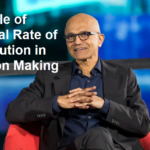Indonesia is set to deepen bilateral ties with Saudi Arabia through potential partnerships in the critical minerals sector, as both nations seek to secure their positions in the global transition to renewable energy and advanced technologies. Energy and Mineral Resources Minister Bahlil Lahadalia announced plans for high-level talks with Saudi officials, signaling a strategic push to leverage Indonesia’s vast mineral resources and Saudi Arabia’s investment capabilities. The discussions, expected to take place in the coming months, aim to explore joint ventures in mining, processing, and supply chain development for minerals essential to electric vehicles (EVs), batteries, and green infrastructure.
Background: A Strategic Alignment of Interests
Indonesia, the world’s largest nickel producer and a key supplier of cobalt and copper, has aggressively positioned itself as a critical player in the global clean energy transition. The country recently implemented export bans on raw nickel to incentivize domestic processing, attracting billions in foreign investment for smelters and battery production. Meanwhile, Saudi Arabia, under its Vision 2030 economic diversification plan, is pivoting from oil dependence to emerging sectors like renewable energy and advanced manufacturing. The Kingdom has earmarked investments in mining and metals as part of its strategy to become a hub for EV production and green technologies.
The alignment of these agendas creates fertile ground for collaboration. Saudi Arabia’s Public Investment Fund (PIF) has already invested heavily in global mining assets, while Indonesia seeks capital and technological expertise to maximize the value of its mineral reserves. “This partnership is not just about trade—it’s about building resilient, sustainable supply chains,” Minister Lahadalia stated during a press briefing in Jakarta.
Focus Areas: From Mining to Value-Added Industries
The bilateral talks will prioritize cooperation across the critical minerals value chain. Key areas include:
- Joint Ventures in Mining and Processing: Saudi-backed entities could partner with Indonesian state-owned miners like PT Aneka Tambang (Antam) or PT Indonesia Asahan Aluminium (Inalum) to develop nickel, bauxite, and rare earth projects.
- Technology Transfer: Saudi Arabia’s interest in lithium-ion battery and EV manufacturing aligns with Indonesia’s ambitions to become a global EV hub. Partnerships may involve sharing refining technologies and establishing integrated battery production facilities.
- Infrastructure Development: Saudi investment could help finance ports, railways, and power plants needed to support Indonesia’s mining ecosystems, particularly in remote regions like Sulawesi and Halmahera.
Notably, both countries are members of the Minerals Security Partnership (MSP), a U.S.-led initiative to secure critical mineral supply chains. However, their bilateral talks suggest a parallel effort to reduce reliance on Western-dominated networks and assert greater control over resource flows.
Geopolitical Implications: Shifting Alliances
The Indonesia-Saudi dialogue unfolds amid rising global competition for critical minerals, with China currently dominating processing and refining capacities. By collaborating, Jakarta and Riyadh aim to counterbalance China’s influence while avoiding over-dependence on Western markets. For Saudi Arabia, access to Indonesian nickel—a vital component in EV batteries—could bolster its $500 billion NEOM smart city project and planned EV manufacturing zones. For Indonesia, Saudi funding and Middle Eastern market access offer avenues to diversify beyond traditional partners like China and Japan.
“This is a marriage of resource wealth and financial capital,” said energy analyst Putra Adhiguna. “Saudi Arabia needs raw materials for its Vision 2030 industries, while Indonesia wants to move up the value chain without taking on unsustainable debt.”
Challenges and Considerations
Despite the optimistic outlook, hurdles remain. Environmental concerns loom large over Indonesia’s nickel sector, where deforestation and water pollution from smelters have drawn criticism. Riyadh may insist on sustainability certifications for joint projects to align with its green image goals. Additionally, Indonesia’s complex regulatory environment and shifting export policies could deter risk-averse investors.
Moreover, Saudi Arabia’s limited experience in large-scale mineral processing raises questions about the feasibility of technology-sharing agreements. “The Saudis have capital, but Indonesia needs partners with proven technical expertise,” noted a Jakarta-based mining executive. “Balancing these priorities will be crucial.”
Looking Ahead
While no formal agreements have been signed, both nations appear committed to fast-tracking discussions. Minister Lahadalia hinted that Saudi delegates could visit Indonesian mining sites by late 2024. The partnership could also extend to multilateral forums, such as the Organization of Islamic Cooperation (OIC), where resource-rich Muslim-majority nations are exploring collective bargaining strategies.
As the global race for critical minerals intensifies, Indonesia and Saudi Arabia’s collaboration underscores a broader trend: resource nationalism and regional alliances reshaping the geopolitics of energy transition. Success in these talks could position them as indispensable nodes in the post-oil economy—provided they navigate the technical, environmental, and political complexities ahead.












